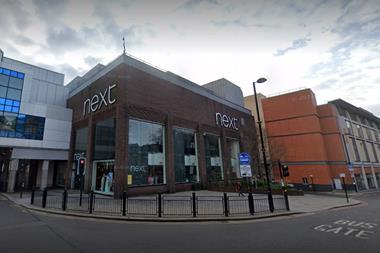Despite UK economic fundamentals remaining fairly stable, a number of problem children are casting a shadow over the UK.

The headlines causing the most concern for UK real estate managers include ‘the death of the high street’; ‘commercial slowdown’ and ‘Brexit debate drags on’.
These macro factors pose a threat to UK real estate. Yet while people tend to dwell on negative factors, these problem children should not cause real estate investors to rethink property altogether, as they may present attractive opportunities.
Retail’s woes have been causing landlords sleepless nights. There is growing discontent among landlords about the way retailers use CVAs and the frequency with which they are entering into these agreements.
Investors will certainly think twice before investing in retail real estate in the current environment. But to disregard the sector could be a mistake. Outside the high street, there are still a number of opportunities where retail sites are set up to attract a captive audience.
First, out-of-town retail sites with the right tenant mix can continue to attract visitors. For example, bulky goods retailers – selling fridges, beds, sofas – are in a good position to attract footfall if their location is right. People want to try before they buy and will travel to do so.
Mixed-use sites can also create captive audiences for retailers. For example, developments offering residential, retail and entertainment on one site may make attractive retail investments. An express supermarket on the same site as blocks of flats is the type of retail investment that should clearly not be overlooked.

Landlords may be wise not to raise concerns about CVAs too publicly, as unrest may lead to a government review of upward-only rent reviews, long leases and privacy of contract. These elements make real estate an attractive investment, given the potential uplift in income. A review could undermine the investment case and add to landlords’ woes.
There is much talk of commercial real estate slowing both in pricing and appeal to overseas investors and a consensus that the UK property cycle has peaked. According to Cushman & Wakefield, £3.8bn was invested in central London commercial property in Q1 2018, down from a quarterly average of £5.3bn in 2017.
Yet this slowdown does not sound the death knell for real estate. London office building prices have yet to fall much. We’ve seen no evidence of the peak passing yet. While investment may be superficially down, this belies sustained demand.
Opportunities remain despite Brexit
Commercial real estate is not on the brink of a crash. In fact, where prices fall, there will be many opportunities for specialist managers to benefit from a weakening in short-term growth prospects.
With Brexit negotiations breaking down, the picture looks increasingly uncertain. But while Brexit factors are deterring overseas investors from UK property, this is not the sole factor giving investors in UK real estate cold feet. Lack of stock and sustained and hardening yields for core assets are also barriers for some investors.
Despite Brexit uncertainty, opportunities remain, mainly for properties needing asset management. These assets may look risky in the current environment, but could prove anything but for investors with the time and expertise to make the necessary improvements.
UK real estate faces plenty of headwinds, but investors should hold their nerve, as there are still opportunities in the UK.






























No comments yet